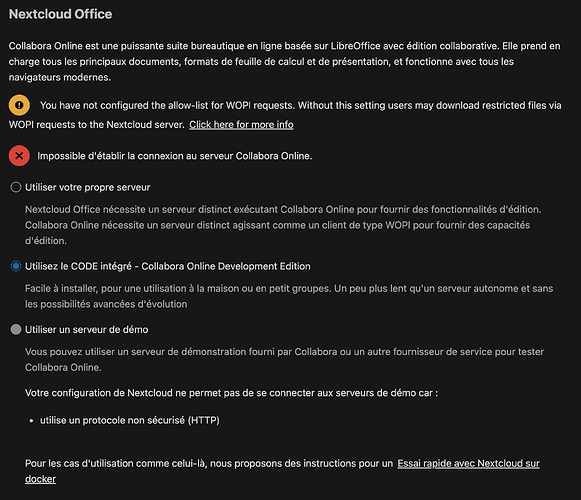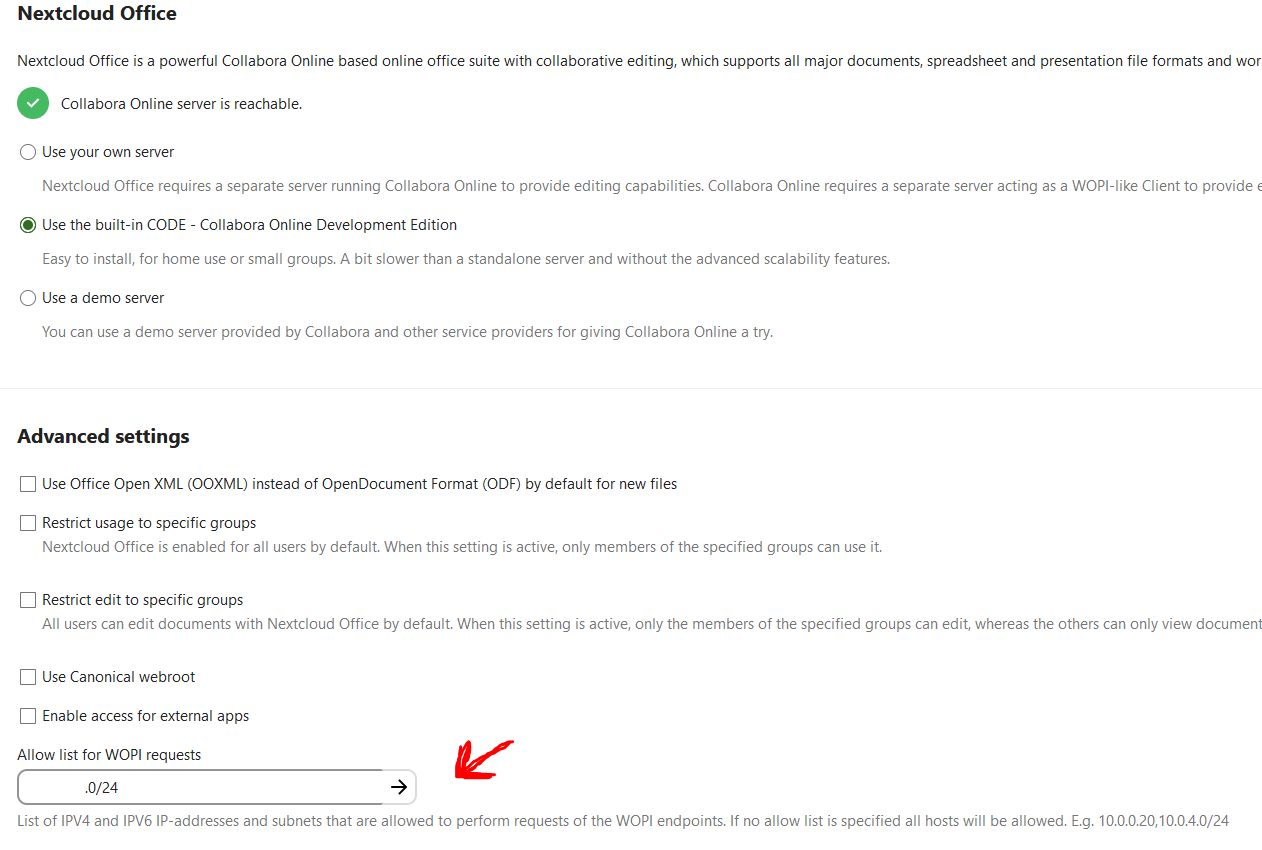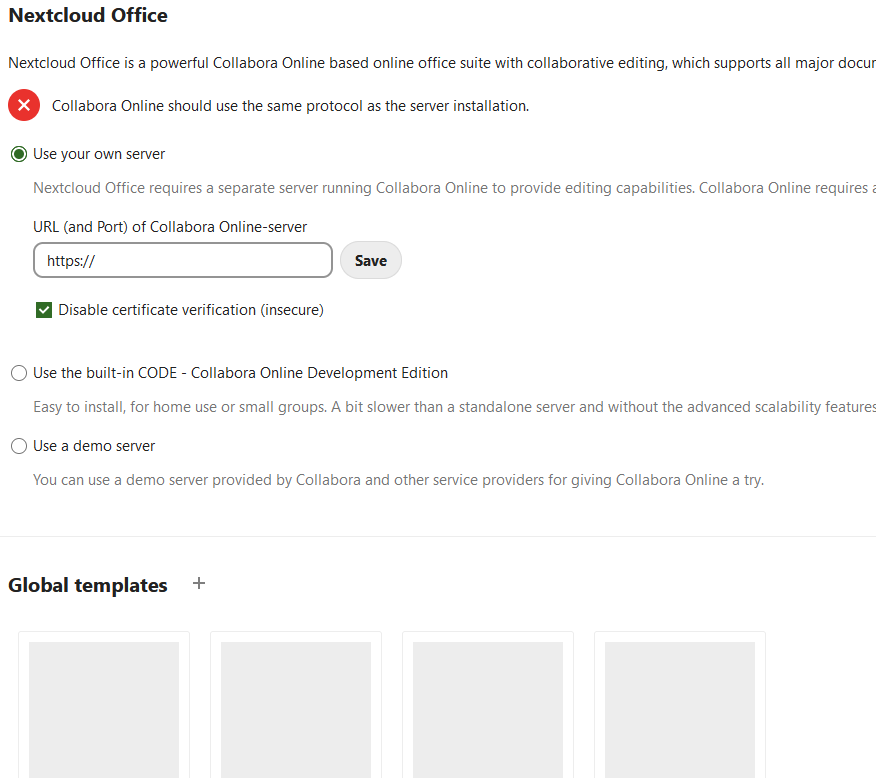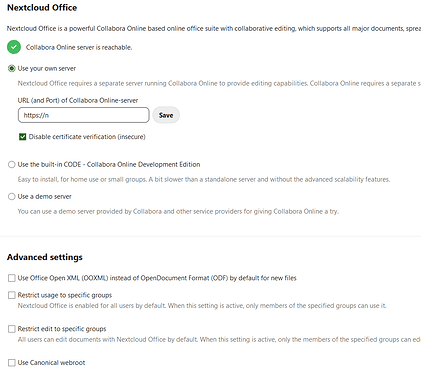Hello,
I’m writing to ask for clarification and advice regarding a problem related to the configuration of the authorization list for WOPI (Web Application Open Platform Interface) requests in Collabora Online - Built-in CODE Server (arm64).
I would very much appreciate if you could provide me with detailed instructions or an explanation on how to correctly configure the authorization list for WOPI requests in Collabora Online - Built-in CODE Server (arm64).
I use Nexcloud with Umbrel (Raspberry) and I don’t need to have an https address, since I go through an internal vpn network (tailscale).
Thank you 
Would that be of any help:
WOPI settings:
and if you had any major updates in either NC apps or the server you might need to do:
systemctl restart apache2
this should restart the Collabora CODE editor too
Hello,
Thank you for your reply.
I’ve restarted the server, but I still don’t have the advanced settings.
Try this:
- select “Use your own server”
- in the URL type either 127.0.0.1 or https://<domian>/apps/richdocumentscode/proxy.php?req=
- select “Disable certificate verification”
and here the page will auto switch to “Use the built-in CODE” or you can try to select it yourself.
Here, and don’t ask me why this is happening 
Collabora Online - Built-in CODE Server 23.5.103
Nextcloud Office 8.0.2
Nextcloud 26.0.2
I might try to report this on Github later as this isn’t right.
No, the advanced settings don’t appear when i change the server.
Thanks for your help.
It’s quite frustrating 
Uhh,
To help any further you would have to share some of your configuration. My experience is based on Debian running in a container and/or “hacked” Chromebox 
You mention Umbrel, maybe ask their community (https://community.umbrel.com/) or think of changing to another OS (Raspbian or DietPi)
![]()



